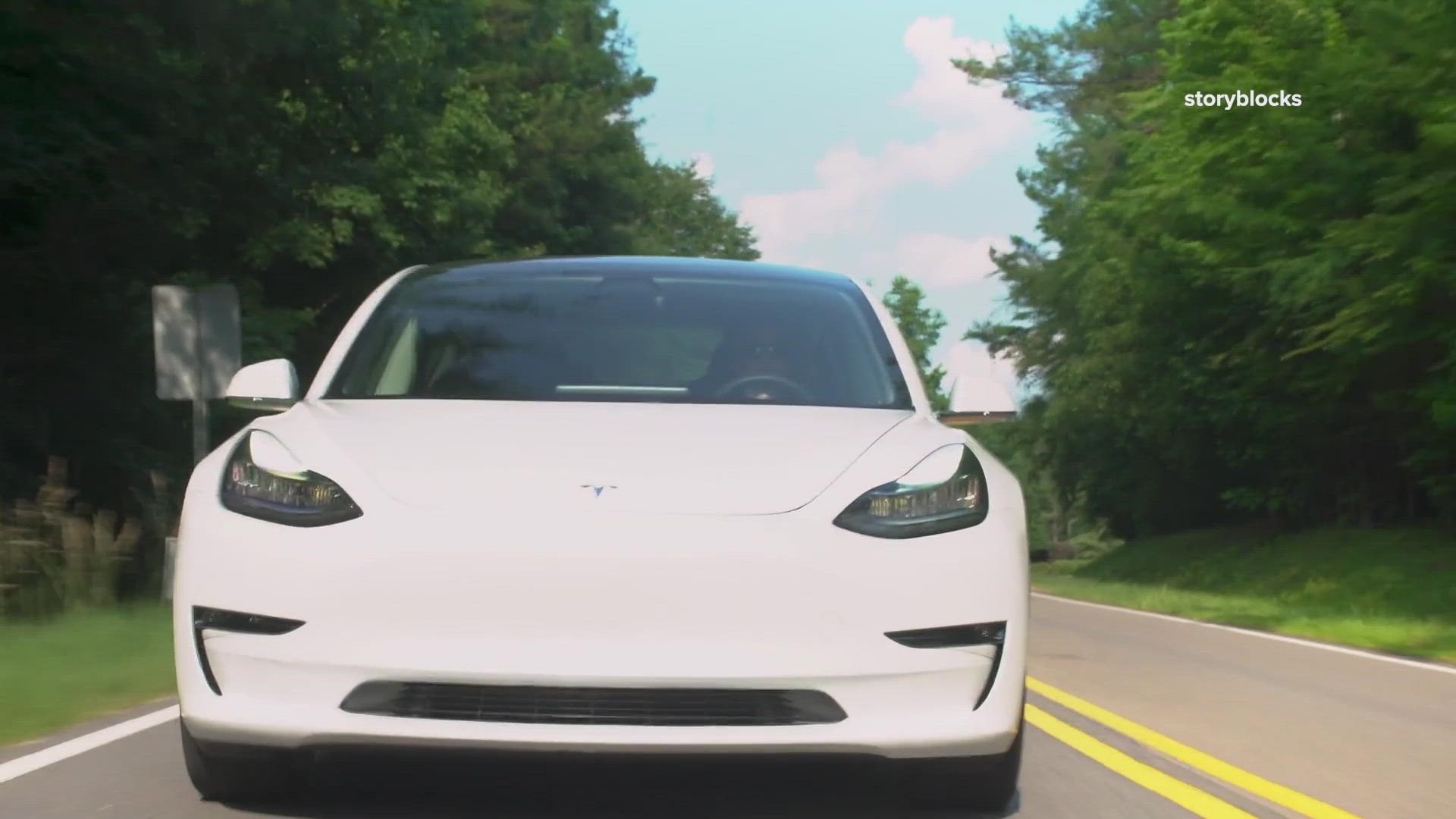More electric cars are for sale now than ever before in the United States, according to the Department of Energy. And in a recent survey, around 39% of Americans said they are considering buying an electric vehicle the next time they go to the car dealership.
VERIFY viewer Joyce wants to know if electric cars are really a good thing for the environment.
THE QUESTION
Are electric cars worse for the environment than gas-powered cars?
THE SOURCES
THE ANSWER
No, electric cars are not worse for the environment than gas-powered cars.
WHAT WE FOUND
The U.S. Environmental Protection Agency (EPA) debunks several myths about electric vehicles on its website, including whether electric vehicles are worse for the climate than gas-powered cars because of power plant emissions.
According to the EPA, electric vehicles typically have a smaller carbon footprint than gas-powered cars, including when accounting for the electricity used for charging an electric vehicle.
“Research shows that an electric vehicle is typically responsible for lower levels of greenhouse gases than an average new gasoline car,” said the EPA on its website. “To the extent that more renewable energy sources like wind and solar are used to generate electricity, the total greenhouse gases associated with electric vehicles could be even lower.”
The EPA also debunks the myth that electric vehicles are worse for the climate than gas-powered cars because of battery manufacturing.
“Some studies have shown that making a typical electric vehicle can create more carbon pollution than making a gasoline car. This is because of the additional energy required to manufacture an electric vehicle’s battery,” said the EPA.
“Still, over the lifetime of the vehicle, total greenhouse gas emissions associated with manufacturing, charging, and driving an electric vehicle are typically lower than the total greenhouse gases associated with a gasoline car. That’s because electric vehicles have zero tailpipe emissions and are typically responsible for significantly fewer greenhouse gases during operation,” the EPA continued.
A recent study published by the International Council on Clean Transportation (ICCT) in July 2021 showed that battery electric vehicles (BEVs) have “by far the lowest life-cycle greenhouse gas emissions” when compared to gas-powered vehicles.
According to the ICCT’s results, emissions over the lifetime of average, medium-sized battery electric vehicles registered lower than comparable gas-powered cars by 60% to 68% in the U.S.
“As the electricity mix continues to decarbonize, the life-cycle emissions gap between BEVs and gasoline vehicles increases substantially when considering medium-size cars projected to be registered in 2030,” said the ICCT.
To estimate the greenhouse gas emissions associated with charging and driving an electric vehicle or a plug-in hybrid electric vehicle where you live, you can use the EPA and Department of Energy’s Beyond Tailpipe Emissions Calculator.
More from VERIFY: No, the government isn't paying farmers to destroy their crops

